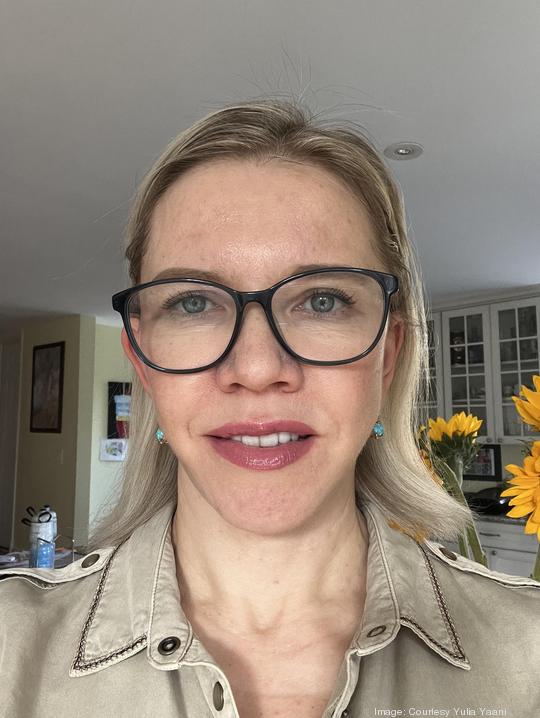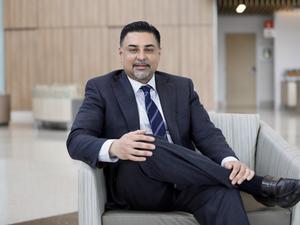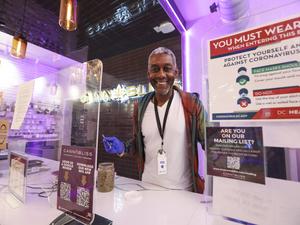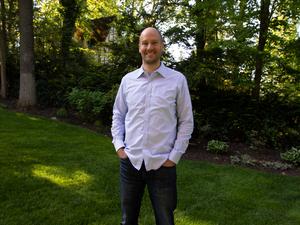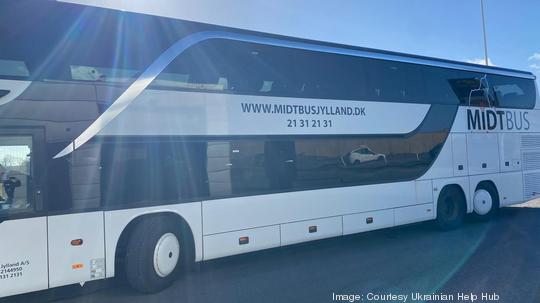
As the clock struck 11 p.m. on March 19, Yulia Yaani gathered a group of Ukrainian refugees at the Polish border. She stepped onto the bus that night, alongside roughly 50 women and children, and they traveled to Denmark for the next 17 hours — to escape the war with Russia.
“That trip had a really profound impact on me, and at first I cried for days, because it was absolutely heartbreaking,” Yaani said. “Even today, even thinking about this today, I’m starting to cry because it was very emotional.”
Nearly two months later, her nonprofit — dubbed the Ukrainian Help Hub — has established its routine of transporting people via bus between Poland and Denmark. Supported by international volunteers, the effort has moved more than 700 people to safety so far and raised nearly $200,000 from the D.C.-area business community to make it possible.
Yaani is co-founder and CEO of Arlington fintech RealAtom, a 5-year-old startup with a software-as-a-service marketplace for the commercial real estate lending industry. She’s also Russian and a longtime American citizen, living in the U.S. for the last 25 years, she said. “It has been very painful from the beginning of the war to watch this situation of injustice.”
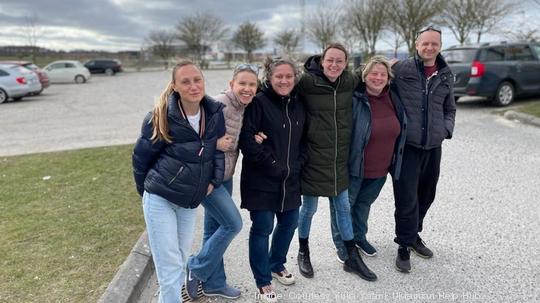
‘What can we do?’
Back in February, Yaani started thinking about how she could help. That’s when Sergey Guzev, founder and CEO of Arlington’s Best Ever Events, told her that his friend had moved six people from the Ukrainian-Polish border to Denmark by car. They got on the phone with Danish volunteers, Yaani said, “and we started brainstorming: What can we do?”
Around that time, the Danish government was supporting an effort to welcome Ukrainian refugees to the country, including passing a law that would give them housing, food, daycare and school, work, health care, monthly allowance and other social benefits. But Yaani soon discovered the country was roughly 1,000 miles from the Ukrainian-Polish border, she said. So she flew from D.C. to Boston to Amsterdam to, finally, Denmark, to see for herself if the trip she envisioned would be feasible — and it was.
“I came back, and that motivated me to get even more involved,” Yaani said.
She and her fellow volunteers, including RealAtom co-founder and Chief Technology Officer Masha Sharma, are now working to expand the effort. They’ve built up their website to share information about the bus trips, funded by donations. They’ve bolstered their fundraising campaign, seeking donations of any amount: $7,350 sponsors an entire bus and $600 moves a family of four.
It’s already seen support from corporate donors and Greater Washington startup executives — including from those in tech CEO forum Mindshare.
“The response was unbelievable,” Yaani said. “People from Mindshare, they actually funded maybe five or six buses. Maybe more.”
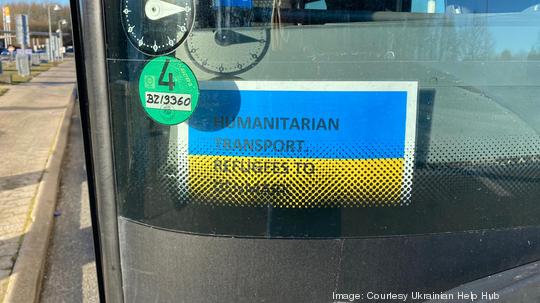
The work continues
To build on that momentum, the nonprofit has launched a virtual art auction to raise money selling drawings by Ukrainian children as NFTs. It’s also developing a 3D version of the gallery.
In addition, Ukrainian Help Hub is planning a virtual walk, run and bike event for peace in June, Yaani said. She’s now working to get athletes and other celebrities to help bring awareness to the effort.
And though more than 5.9 million refugees have fled Ukraine since February, there’s more work to do.
The nonprofit’s volunteer team is setting out to move 5,000 people on its own, “but we all hope that the war is going to be over sometime soon, and in that case, we would need to move all those people back home, so we will be doing the same thing but in the opposite direction,” Yaani said. To move 10,000 people in all would require about $1.5 million to fund 204 buses.
“Like with any startup, you sort of set a goal, and it should be an ambitious goal,” she said. “But our goal is basically to move as many people as we can possibly to safety.”
Ukrainian Help Hub was possible “because we are startup people,” Yaani said. “We’re used to operating under pressure.”
“We’re not trying to boil the ocean,” she added, “but when we can make one very specific thing to make those people feel safe, that’s the success.”
